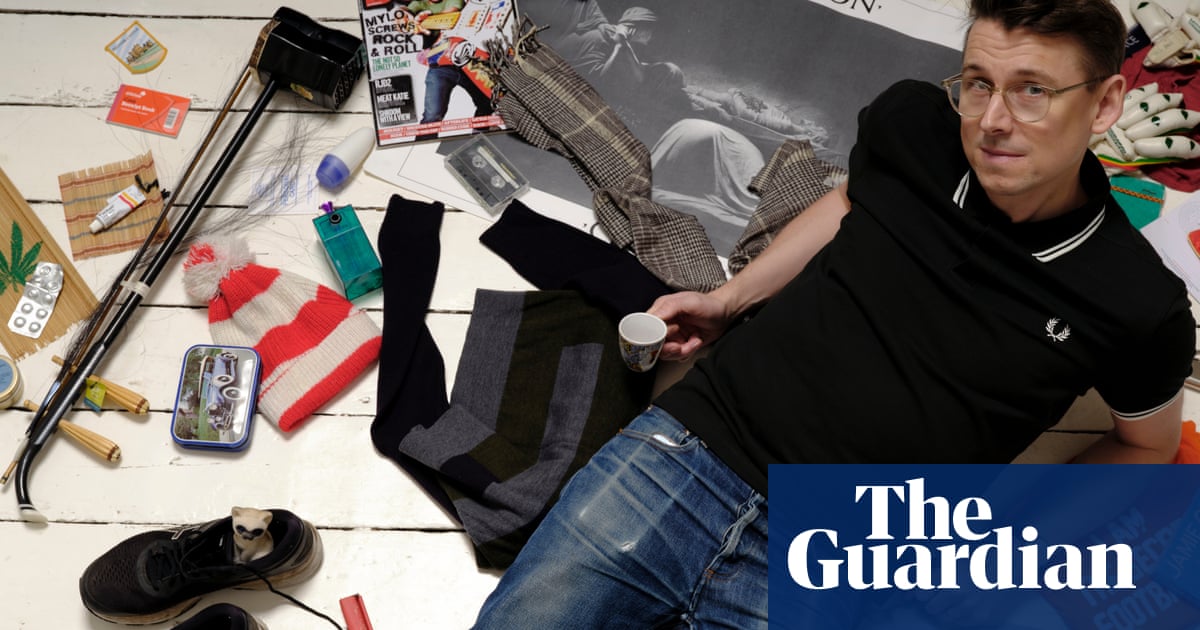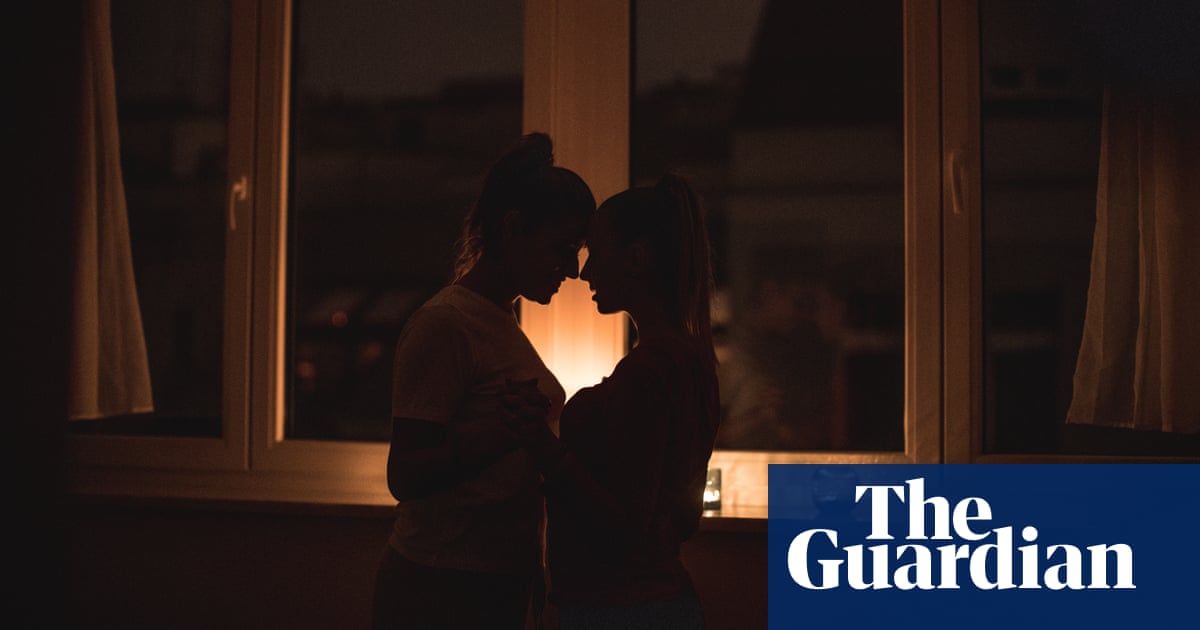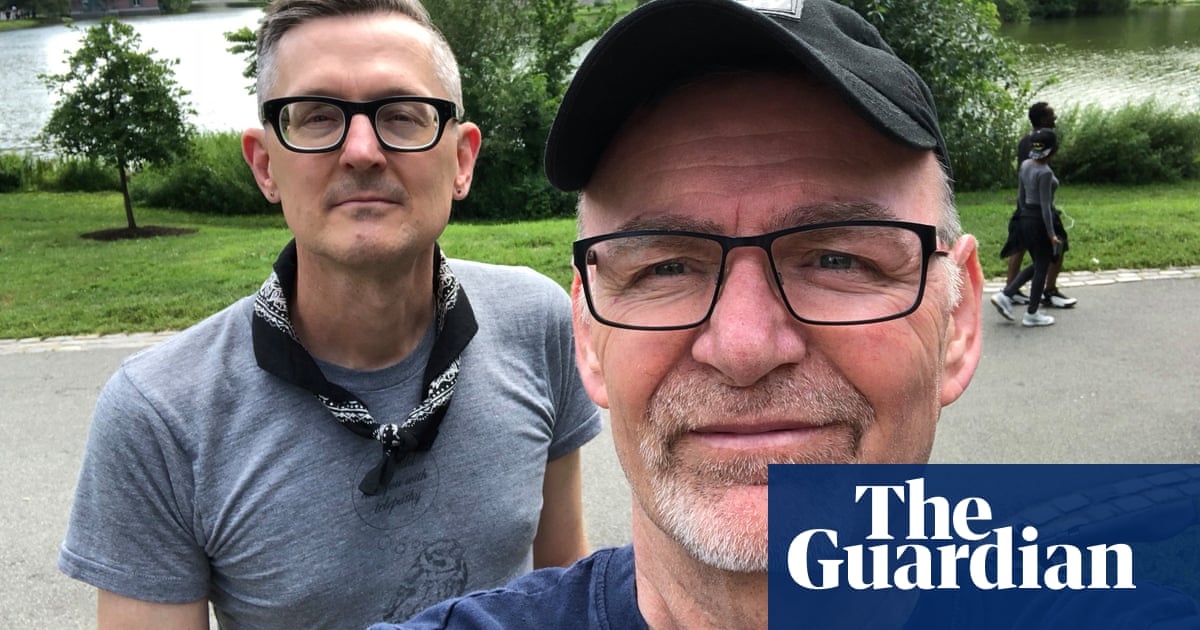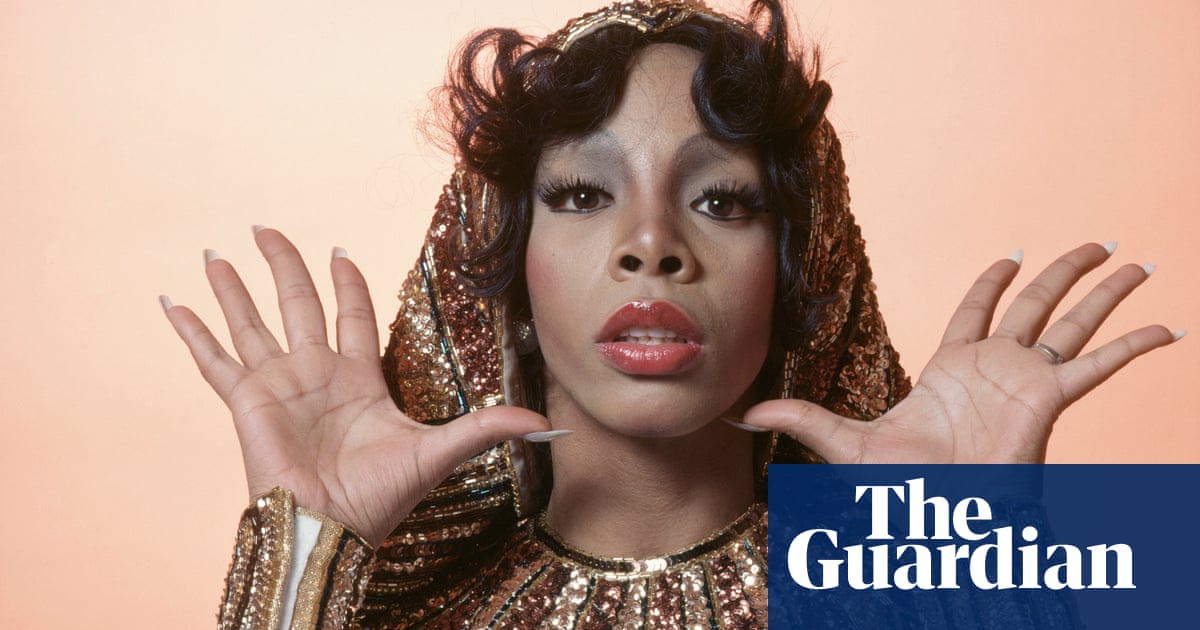
Phil Wang is trying to think of a comedian who isn’t an introvert. When he’s really pondering a subject hard his eyes typically roll upwards, his pupils almost disappearing into his eyelids, like he had written the answer to the riddle on the ceiling above him earlier. Eventually he alights upon one candidate, but doesn’t want to name him in case the comedian would take offence at being called an extrovert.
“Gosh, maybe I can’t think of any,” says the 31-year-old Wang, finally. “Probably I don’t even know what an extrovert is any more. I don’t think extroverts really need comedy, in a way. They don’t need a formalised setup in order to interact with people. That was the main appeal about standup, now I think about it, for me as an awkward teenager: it was a formalised setup for interacting. People had to listen to me. And if they interrupted me, they were being rude. And they should leave.”
Wang chuckles. “When I get up on stage to do standup it’s usually – is often – the first thing I’ve said that day,” he goes on. Really? “Maybe that’s too extreme, but it feels like that sometimes,” he says. “But there have definitely been days when my gig is the first thing I’ve said to anyone all day.”
Before there’s a mass outpouring of sympathy for Wang, a couple of notes should be made: a) he seems remarkably content with his own company (alongside “an addiction” to playing random strangers on chess.com); and b) whatever he’s doing in his life is working pretty well for him in his career right now. Next month his standup special, Philly Philly Wang Wang, lands on Netflix. Then, in September, he publishes his debut book which he reluctantly concedes is “part” memoir, Sidesplitter: How To Be From Two Worlds At Once. He’s also performing standup around the country, culminating with two nights at the Lowry in Manchester in October. If you do want to avoid Phil Wang this autumn, good luck.
Wang’s book and Netflix special are tonally very different: Sidesplitter is elegantly written and unexpectedly moving; Philly Philly Wang Wang showcases his ability to do an excellent vocal impersonation of sperm. But both jump off from the same point, what he calls “my circumstances”. Wang’s mother is a white British archeologist who volunteered for VSO in Malaysia where she met his father, a Chinese-Malaysian civil engineer. He was born in Stoke-on-Trent, but moved to Borneo when he was three weeks old, and mainly stayed there until he was 16. At that time he came back to the UK, where he has lived ever since. He now where he has spent half his life in Asia and half here, and it has made him think a lot about the multicultural experience and being mixed race, and other subjects that don’t always find their way into comedy routines.
At the outset of Philly Philly Wang Wang, he makes a distinction between “cricket Asians” and “eats-weird-shit Asians”. Wang is part of the latter group, he says, and he tells a gleeful story of stuffing a tarantula into his mouth at a street market. The Covid pandemic has, he accepts, been “bad for the brand” for his part of Asia: a cautionary tale of what happens when you eat “one piece of weird shit too far”. Today, we meet in a Vietnamese restaurant, where Wang has a more conventional bowl of hu tieu nam vang, rice noodles with pork, shrimp and a poached egg. “Thanks for coming to my office,” he says when I arrive.
Mainly, though, Wang has concluded that being mixed race means he will never entirely feel at home in either of the places where he has roots. Or anywhere else for that matter. This could be a bleak sentiment, but Wang concentrates on the positives. “There’s a trade-off,” he says. “The joys of feeling truly at home somewhere and being from somewhere are great. But then I feel like having an international life and having lived in different places is also great. But it comes at a cost. And the book is about the process of coming to terms with that and realising it’s also a gift – not something to be regretful for.”
When Philip Nathaniel Sin Goi Wang was told as a teenager that his family were moving to the UK he was thrilled. (Almost everyone in this country mispronounces “Wang” but he gave up correcting them about a decade ago.) He was very happy in Malaysia, with his two sisters and “163 cousins”, doing the martial art Shorinji Kempo every Saturday in the dojo run by his uncle David. Wang was given a crash course before he left for England so he received his black belt – an honour somewhat tarnished by nepotism, he now concedes.
“I was really excited about moving, I was really looking forward to it,” says Wang. “Because I had this idea of the UK and the West as this great culture where you could do things. Where you could be things. Where you could make things. Where literature was made, and film and television, music and all these things. But yeah, it was a shock to find out just how Asian I was, when I moved over. Yeah, that was a surprise.”
Wang had landed in Bath, “a spa town for people who find Cheltenham too ethnic”, he writes in Sidesplitter. He did well at school academically, but didn’t exactly integrate and it was this that led him to put himself up for his school’s comedy show. “It was because I felt so uncool and alien,” he says, “that I was like, ‘I’m going to show people that I’m funny. That I’m interesting. That I’m worth their time.’” His material for the performance was heavily influenced – OK, stolen – from the Canadian comedian Russell Peters and the American standup Jim Gaffigan. “But I wasn’t paid for the gig,” says Wang. “So they’ve got no legal recourse. I want that in print.”
Life became easier for Wang at university, where he studied engineering at Cambridge. The crowd was more diverse and his comedy was hitting its stride. In his second year he won the influential Chortle Student Comedy Award; in his third he was taken on by an agent; and in his fourth and final year he was president of Footlights. In the 80s and 90s, this would have been a fast track to creating and starring in a sitcom or Radio 4 show, or at least a Radio 4 show, but Wang points out that some of the lustre of Oxbridge comedy has worn off now. “We’re living in quite an anti-institution era, as far as popular culture goes,” he says. “So being a part of an old institution that’s predominantly associated with the white man is a poisoned chalice. I think it hinders as much as it helps now.”
Instead, Wang’s rise has come through a steady accumulation of credits on comedy specials and panel shows: Live at the Apollo, 8 Out of 10 Cats Does Countdown, Taskmaster. His first appearance on Live at the Apollo in 2016 was, Wang thinks, a particularly important break, and introduced audiences to one of his signature tics, where he repeats his own name for comic effect. “I wanted people to remember my name because I wasn’t known then,” he says. “So it was just, ‘This is my name. This is my name. This is my name. Remember me from the show.’ It was calculated, but now it’s become more like a recognised shtick.”
Then there was Wang’s beef, one-sided admittedly, with Tom Hiddleston. It started in 2018, when Wang appeared on the TV show Room 101 and pitched the actor as one of the things he wanted to be consigned to oblivion: the world, he argued, doesn’t need all three of them – Benedict Cumberbatch, Eddie Redmayne and Hiddleston. “I just thought it’d be funny to get a living famous person – a very popular one – into Room 101,” recalls Wang. “But I also find him bizarre and quite obnoxious and strange. Just watching his interviews – him singing Michael Jackson in Korea, doing an impression of Robert De Niro in front of Robert De Niro.”
Frank Skinner, the presenter of Room 101, rejected Wang’s nomination, but he wasn’t finished yet. In 2019, he tweaked a Chinese commercial for Centrum women’s vitamin supplements, in which Hiddleston prepares breakfast for an unseen recipient, by inserting his own incredulous, horrified reaction shots, recorded at an apartment he was staying in in Melbourne. He posted the new – ingenious – video on Twitter and it has since been watched 6.6m times.
“I thought, ‘This will get a few hundred retweets,’” he says. “But the mad thing is it’s probably the most anyone has seen of any of my work. That one Sunday I spent writing, filming and editing that little clip was more exposure than all these TV shows. It’s just such a strange world now. There are times when I think, ‘What am I doing, doing standup? I should just be making videos every Sunday.’”
In his 20s, Wang began to make modest changes to his look. He had always worn thin, frameless spectacles hoping, he thinks, that people wouldn’t realise he was wearing glasses at all. Then, one day in Specsavers, he popped on a pair of oversized frames as a joke and saw they suited him. He had never thought much about his hair, but decided to finally spend money on a cut. “It’s arrogant to call it a transformation,” says Wang. “I mean, who knows if it’s even better, but it feels better. It’s certainly more expensive.”
Partly the new look was inspired by the fact that Wang was dating more. He’s cagey about whether he has a girlfriend now – a chunk of the Philly Philly Wang Wang show is about being single – but he’s clear in Sidesplitter that he would like to have kids one day. “That’s an urge that’s in you, or it’s not, and I’ve always had it,” he says. “But I never think I’m going to do it anytime soon. Having kids is like learning a language. I’m like, ‘It’s going to be so great when I know French.’ But I never go, ‘OK, now’s the time to sit down and learn French.’”
A recurring theme in Wang’s recent standup is that he’s getting old. He’s not really of course, but he genuinely believes he is changing. Some changes are trivial (a bad back), others more thought-provoking (realising he’s not as left-wing as he thought). “Living life is just a constant disappointment, but your parents were right the whole time,” he says. “They say you become more right-wing as you get older and with a few notable exceptions it’s true, you do.”
The pandemic, meanwhile, has forced Wang to face uncomfortable truths about his own altruism. “Oh, yeah, I haven’t helped a soul,” he reflects. “I thought I was going to buy old people their shopping, I was going to volunteer at vaccination centres. I haven’t helped a single person all pandemic. At this point it is actually impressive.
“People were like, ‘Yeah, the pandemic’s going to bring people together,’” Wang goes on. “It’s probably going to make us more selfish. It’s made travel harder, it’s made countries more insular. It’s made communities more atomised. Pushing us further on to social media has made us more tribal. I’m not advocating for pure selfishness. But I think it’s funny confronting the uncomfortable truth that we’re all fundamentally selfish agents. And comedy is uniquely positioned to point that out and make fun of that and revel in that.”
This, for Wang, is what he loves about standup. One time, after a gig in London, a white middle-class couple from Essex came up to him – and the comedians Pierre Novellie and Nish Kumar – and said they had enjoyed the show in the main, “but enough of the race stuff, eh?” Wang found the comment, and the ensuing discussion, enlightening. In Malaysia, everyone had talked about race all the time: that’s what happens in a country that is highly racially diverse, where the largest ethnic group – the Malays – make up only half the population. In the UK, where 80% of the population is white British, the subject can remain more of a taboo.
“You’d be forgiven for thinking that all we talk about is race at the moment,” says Wang. “But this surge over the last year is only because we’ve suppressed it for so long. It’s erupted. And you should talk about it. The longer you suppress it, the more negative emotions fester and bubble and boil. It breeds a poisonous subculture. It’s something that people are always aware of, but never really talk about, which is usually fertile ground for comedy, right?”
For now, Wang says there is mainly joy and relief that he can perform again. The past 18 months has made him realise how much he needs comedy. “I just felt so rudderless,” he admits. “I hadn’t realised how much I use standup to process my own thoughts. I started having weird dreams and going a bit nuts because I wasn’t processing my thoughts in that way any more.”
Wang’s even relishing the prospect of human contact. “It helps for an introvert like myself to just go out in one intense burst, and then retreat to be on your own again,” he says. “It’s the introvert’s dream in many ways.” Wang smiles, “And you don’t have to wake up too early.”












